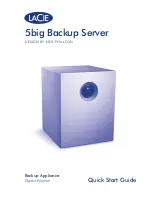
Operation Manual – Multicast
H3C S5100-SI/EI Series Ethernet Switches
Chapter 1 Multicast Overview
1-1
Chapter 1 Multicast Overview
1.1 Multicast Overview
With development of networks on the Internet, more and more interaction services
such as data, voice, and video services are running on the networks. In addition, highly
bandwidth- and time-critical services, such as e-commerce, Web conference, online
auction, video on demand (VoD), and tele-education have come into being. These
services have higher requirements for information security, legal use of paid services,
and network bandwidth.
In the network, packets are sent in three modes: unicast, broadcast and multicast. The
following sections describe and compare data interaction processes in unicast,
broadcast, and multicast.
1.1.1 Information Transmission in the Unicast Mode
In unicast, the system establishes a separate data transmission channel for each user
requiring this information, and sends a separate copy of the information to the user, as
shown in
Figure 1-1
:
Source
Server
Receiver
Receiver
Receiver
Host A
Host B
Host C
Host D
Host E
Packets for Host B
Packets for Host D
Packets for Host E
Figure 1-1
Information transmission in the unicast mode
Assume that Hosts B, D and E need this information. The source server establishes
transmission channels for the devices of these users respectively. As the transmitted
traffic over the network is in direct proportion to the number of users that receive this
















































